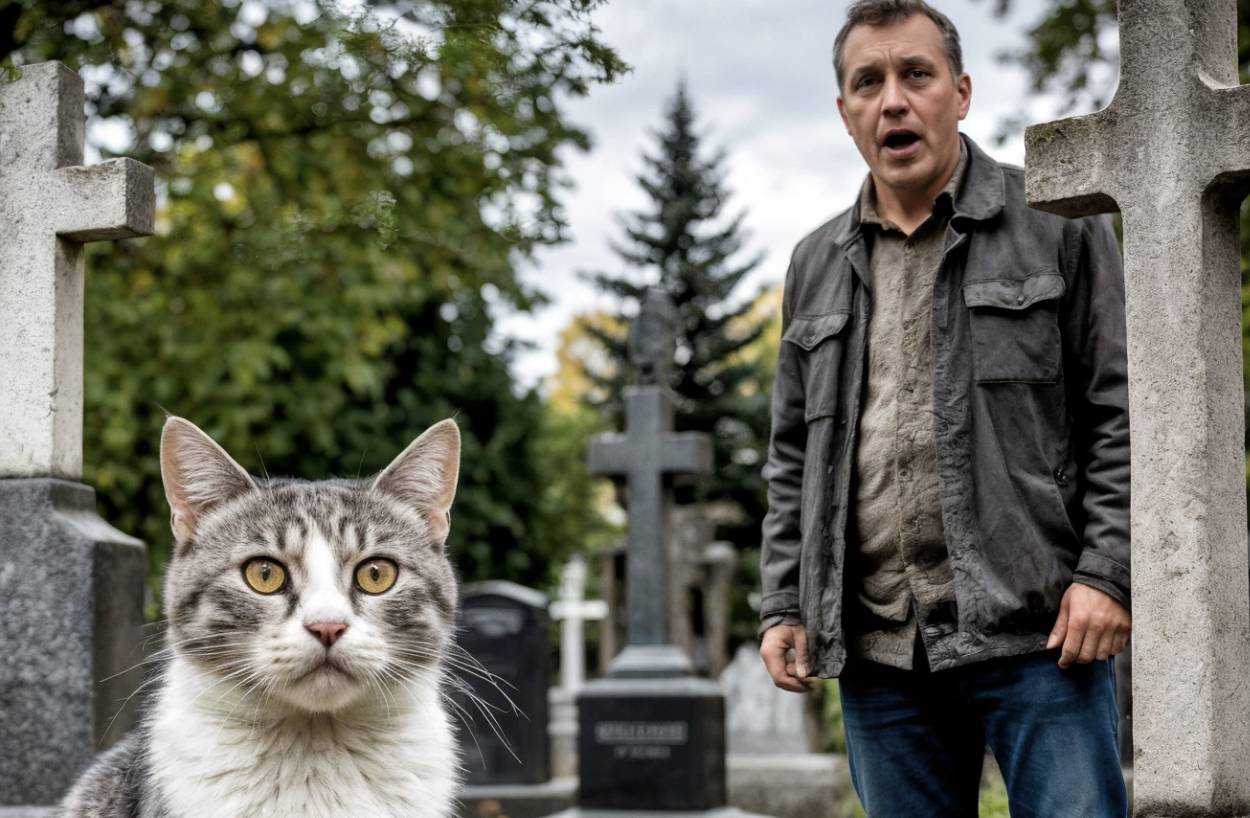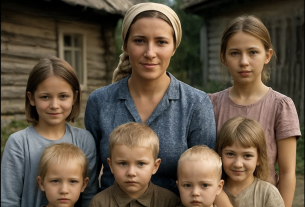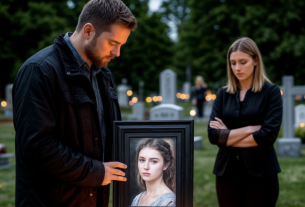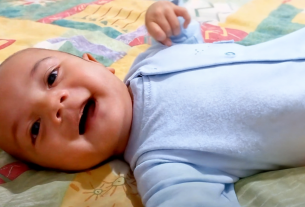Kirill was walking down the street, noticing nothing around him. As if through a fog, he pushed forward, bumping into passersby who grumbled discontentedly behind him—but he did not hear them. He didn’t even know where he was or which part of the city surrounded him. Everything seemed distant, alien. The man seemed to have turned into a walking void: his gaze was lifeless, his face frozen, his thoughts absent.
He only came to when someone shook him so hard that his head spun and his whole body trembled. It turned out he was standing in the middle of a narrow alley, right in front of a car with the driver’s door open. Next to him stood a tall, sturdy man—probably the driver—gripping Kirill’s jacket in his fists and cursing fiercely.
Kirill ran his palm over his face, trying to shake off the numbness. Seeing that something had stirred in the young man’s eyes, the man hissed:
“Are you a complete idiot? High on something or shooting up?”
Kirill shook his head, denying it.
“Then what the hell were you doing under the wheels? Don’t you care about yourself—think about others! Because of you, I might end up in the slammer. If you’re so sick of life, that doesn’t mean I’m ready to follow you!”
“I haven’t had any plans for a long time,” Kirill answered expressionlessly. “Sorry, man… I didn’t mean to.”
With these words, he went around the man and slowly moved on, not even understanding where or why.
The driver, about fifty years old, lingered by the car, watching him go with puzzlement, then waved his hand and headed back to the vehicle. But suddenly he stopped, recalling that empty look and Kirill’s words. After a few seconds’ hesitation, he decisively ran after the young man.
Catching up to him, Grigory Danilovich looked him over more carefully and asked:
“Hey, friend, are you okay?”
Kirill looked at him questioningly.
“You look like a ghost, honestly.”
The man nodded.
“Almost the same… I’m already dead. Only the body walks.”
Grigory looked at him closely and firmly said:
“No way, brother. I won’t leave one like you behind. What if you really drop dead before your time?”
He took Kirill by the arm, turned him toward his car, and added:
“Come with me. And don’t argue. This ‘dead man’ stuff is too early. I’m over fifty myself and still not going anywhere. And you already decided your time’s up?”
Kirill shuffled alongside, barely lifting his feet. He didn’t understand what the stranger was talking about and didn’t even hear the question about where to go. He just silently let himself be seated inside.
“Well, if you’re silent, I’ll drive where I decide,” the driver sighed, starting the engine.
Half an hour of quiet driving, and they stopped near a cozy house behind a low fence. Kirill finally perked up:
“Where have we come?”
“To my place, the dacha,” replied Grigory Danilovich. “I live in the city, but in spring I move out here. The air is different here, the soul rests. So come on, get out—you’ll be my guest.”
Kirill got out of the car and followed the host.
“What’s your name?” he asked simply to start talking.
“Grigory Danilovich. And you?”
“Kirill.”
“Well, now we’ve met! Come in, don’t be shy,” the man invited, noticing the young man standing hesitantly.
Kirill entered, looked around, and still confused, asked:
“Why did you bring me here?”
Grigory placed his palm on Kirill’s shoulder:
“I can’t just let go of a person who looks like he’s lost the whole world. You didn’t give me an address, so I brought you here. You’ll rest, come to yourself—we’ll figure out what to do next.”
Kirill looked over the neat yard overgrown with flowers and asked:
“Do you live here alone?”
Grigory laughed:
“Alone? No, son. With the whole family. Wife, grandchildren, kids come on weekends. This dacha is like a second home to us.”
At that moment, a woman came out of the house and slowly walked toward them.
“Grisha, why are you keeping the guest outside? Invite him in,” she gently reproached her husband.
She was tall like her husband, with neat light hair, large gray-green eyes, and still maintained a slender figure. Her soft voice created a feeling of comfort as if it dispersed worries and filled the silence.
“And here’s my beloved wife!” introduced Grigory Danilovich. “Ekaterina Fyodorovna, my dear!”
The woman smiled warmly. Kirill noticed her smile was as calm and kind as everything about her.
“My name is Kirill,” the young man introduced himself.
“Come into the house. Lunch is just ready,” invited Ekaterina Fyodorovna.
While Kirill washed up, Grigory Danilovich briefly told his wife how he met the guy and why he brought him here. She nodded approvingly:
“You did the right thing, Grisha. Sometimes people just need to be around other people.”
At lunch, no one questioned Kirill about his grief. Grigory and Ekaterina Fyodorovna, seeing his depressed state, tried to distract him—they talked about the dacha, laughed at grandchildren’s jokes, included the young man in conversation so he wouldn’t feel like a stranger.
After the meal, Grigory led Kirill to the gazebo. At first, they discussed the weather, trees, life at the dacha… But over time, Kirill began to tell his story himself. Grigory listened carefully without interrupting, only occasionally asking questions. He understood the guy needed to talk.
Kirill married early—while still at university. His chosen one was Ulyana, a third-year student. Her parents sighed then: too young, no stability, no job. But they did not intervene.
“While you live with us, we’ll help; after that, it’s up to you,” decided the matchmakers at the first meeting.
The wedding was modest, student-style. The young couple lived with Kirill’s parents—in a spacious three-room apartment. His mother was strict, and he feared how Ulyana would get along with her. But the women found common ground almost immediately. Probably because his mother always wanted a daughter but could not have more children. In Ulyana, she found a substitute daughter, which pleased Kirill immensely.
After a year, the couple received joyful news: a child was coming. By then, Kirill was already working at a law firm—salary was small but steady. He dreamed of becoming a successful lawyer, and that goal gave him strength to move forward. Fatherhood did not scare him; on the contrary, it inspired him.
Ulyana decided to finish university and then take an academic leave after the baby’s birth to devote herself fully to the child.
In early June, their son Vasily was born. For the grandparents, he was “Vasyka” or “Vasenka,” and for the parents, “Vasilka.” The boy grew healthy and active, quickly becoming curious and joyful.
When Vasily turned one, they went to the dacha at Ulyana’s parents. Vasilka was delighted by the space: hiding in currant bushes, running among tall tomatoes, falling asleep in the hammock between apple trees.
One day, a little kitten appeared on the plot—a white one with a black spot on its head, like a cap. Gray eyes, sharp claws, tiny teeth—all so fragile and defenseless. It seemed someone brought and abandoned it here.
The adults were still deciding what to do with the foundling when Vasilka approached the kitten, gently touched it, and said:
“Tyopa!”
That moment touched everyone. They decided to keep the kitten.
“Let it live with you,” Ulyana’s mother suggested. “Vasenka will play with it when he visits.”
But summer passed, and the kitten became so beloved by the boy that taking it back to the city without him became impossible. So Tyopa came along.
Tyopa became a true family member. Not only was he a friend to Vasilka but to everyone at home. They ran through rooms together, went to the kitchen for treats, climbed onto grandpa’s and dad’s laps. The kitten slept in the child’s crib next to the boy, every night burrowing under the blanket in his little owner’s arms. They even celebrated birthdays together—on the same day.
Disaster struck suddenly. Ulyana was returning home with her son after another checkup at the children’s clinic. On the way, she asked the taxi driver to stop at a store opposite their home. After buying what she needed, she and the child headed across the road. The traffic light turned green—they confidently stepped onto the crosswalk.
But at that moment, a car sped around the nearest corner—without slowing, it hit them and immediately fled, turning aside. From the impact, Ulyana and Vasilka were thrown apart. Both died instantly.
Kirill remembered almost nothing after that: police, ambulance, funeral, investigation… The driver was found a few days later—witnesses’ testimonies and security camera footage helped. Investigators had to piece together the crash scene frame by frame to prove that this car—a Volkswagen—was the cause of the tragedy. The examination confirmed he lost his loved ones because of this vehicle.
But Kirill didn’t care what sentence the driver received. He lost interest in everything. Stopped talking to friends, hardly spoke to parents, lived in constant apathy. His salvation was Tyopa—a white cat with a black spot on its head.
The young man would sit for hours holding him. The three-year-old cat, as if understanding his pain, never left his owner. He could sit by the door, waiting for his return, then follow Kirill around the rooms. When Kirill sat on the couch, Tyopa carefully jumped on his lap, got comfortable, and began to purr.
That purring became Kirill’s consolation. Slowly, he began to come out of his numbness. Interest in life, work, and people returned. His parents noticed the change and knew it was thanks to the cat. They affectionately called him a fluffy angel and spoiled him with all kinds of treats.
Tyopa became Kirill’s support. He walked with him in the yard and park, having first put a harness on the cat, told him about his affairs, sought solutions to difficult questions under the soothing purring of his favorite. Five years passed like that.
“And today, Tyopa is gone,” Kirill said quietly.
“Maybe he died?” Ekaterina Fyodorovna asked cautiously.
“I don’t know,” the man sighed. “I came home late from work. Today is the anniversary of their passing, I was at the cemetery, cleaning the graves, talking to them. When I got home, no one met me. I called out—no Tyopa. Mom stood there in tears.
It turned out the whole day the cat sat by the front door, waiting. When I was late, he began to worry: pacing the apartment, meowing, hitting the floor with his tail. Then the neighbor came in, the door was slightly open—Tyopa took advantage and ran away.
Parents searched for him for a long time, but to no avail. In the morning, I continued the search: checked the yard, basements, nearby streets. No sign of the cat alive or dead.
That day I felt like I lost my family again. What happened after, I don’t remember. I only came to when Grigory Danilovich shook me, trying to bring me back to reality.”
“The story isn’t simple,” Grigory said thoughtfully, shaking his head.
“How far is that cemetery where your loved ones are buried?” asked Ekaterina Fyodorovna, who had long been standing behind them, leaning against the gazebo railing. She tried not to interfere and quietly listened.
The men turned around.
“The cemetery?” Grigory repeated. “What does it have to do with it?”
“I just thought… maybe Tyopa sensed you and went looking for you. There are cases when animals find their way to their owners even across hundreds of kilometers. Maybe he went where you were.”
Grigory and Ekaterina Fyodorovna looked at Kirill, waiting for an answer.
“About an hour’s drive, if there’s no traffic,” he answered uncertainly.
Ekaterina Fyodorovna turned to her husband:
“Grisha, maybe you should go there? At least check.”
“All right,” he agreed. “Let’s go, show me where they are.”
“And while we’re at it, we’ll check the office,” added Ekaterina. “Maybe he’s there?”
The men got into the car. First, they stopped at the law firm. Kirill checked the cameras at the entrance—no sign of Tyopa anywhere.
“Then only the cemetery remains,” said Grigory, starting the engine.
“Unlikely he’s there,” Kirill objected. “I never took him on that road with me.”
“We’ll check,” Grigory Danilovich replied shortly.
They arrived at the cemetery gates and headed toward the graves of Ulyana and Vasily. Kirill felt growing anxiety inside. The closer they got, the faster his heart pounded.
Soon two monuments appeared—a tall maternal one and a smaller one for the child. The men took a few more steps and exclaimed in unison:
“It can’t be!”
Kirill rushed forward. Right on the stone at the head of the child’s grave, curled up like a ball, lay Tyopa.
“Kitty!” he called, but the animal only slightly twitched its ears.
Kirill gently took the cat in his arms. He was dirty, with a torn ear, a scratch visible on his nose, and burrs stuck to his tail.
The man pressed him to himself, kissed his worn face, unable to hold back his emotions.
“Tyopych, my dear! What have you done? We searched for you everywhere, and you were here… How did you even get here?”
Grigory Danilovich stood nearby, carefully wiping a tear. He softly said:
“Let’s go home. And let this be our explanation. I’ve seen a lot in my life, but this is the first time.”
On the way back, Kirill didn’t let the cat out of his hands. Holding him close, stroking him, warming him. And Tyopa, settling on his lap, from time to time sleepily opened his eyes, looked at his owner, and thought:
“Well, I found you, beloved person. Without me, you would have completely lost yourself… No, you can’t be left alone with such owners.”



